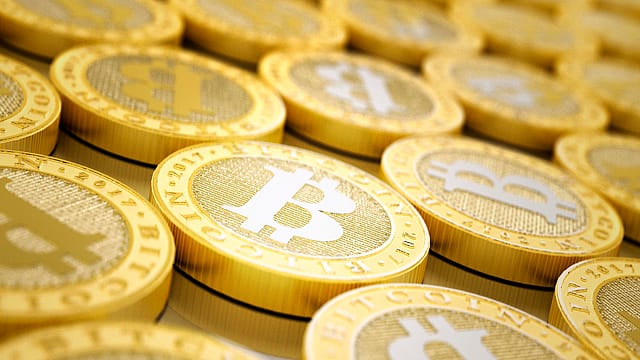Budget 2024: Crypto investors and exchange owners seek tax cut to revive ailing industry
ADVERTISEMENT

The cryptocurrency market has been through a rollercoaster ride in the last one year as a series of negative developments such as the fallout of global cryptocurrency exchanges Binance and FTX as well as global finance uncertainty amid tight credit situations have taken a toll on demand for digital coins like Bitcoin and Ethereum. As the government is set to present the interim Budget in the Parliament on February 1, the crypto investors and exchange owners have reiterated their pending demand of cutting tax rates on crypto assets this year. The industry also seeks a more comprehensive policy on cryptocurrency regulation, while they also want clarity in the virtual digital assets (VDAs) definition.
However, it is widely expected that the government is unlikely to offer any respite to the cryptocurrency market, rather they are considering imposing higher restrictions, including a complete ban on private cryptos. In the last Budget, Finance Minister Nirmala Sitharaman offered no relief to the crypto industry as the government continued with its flat 30% tax on virtual assets, which was proposed in FY22. Apart from the heavy taxation, the government imposed an additional 1% TDS on all crypto transactions in the Budget 2022.
Manhar Garegrat, Country Head, India & Global Partnerships at Liminal Custody Solutions, says the Budget 2024 presents a pivotal opportunity to pave the way for a thriving digital asset landscape in India. However, unlocking the full potential of this transformative asset class demands a robust ecosystem built on clarity, innovation, and talent. He said that the crypto market seeks clarity in VDA definition and tokenisation; removal of 1% TDS on overseas crypto assets; and prioritisation of research and development for Web3 projects.
Garegrat says that the current broad definition of Virtual Digital Assets (VDAs) in notification no. 74 of 2022 needs to be more nuanced. “We urge the government to amend the VDA definition, explicitly excluding tokenised assets with proven underlying value, similar to established precedents like gift card exemptions. This targeted revision will foster a dynamic and inclusive digital asset ecosystem.”
He further states that introduction of a 1% Tax Deducted at Source (TDS) in 2022 led to an estimated loss of $420 million in potential government revenue due to migration of Indian crypto traders to overseas platforms. “We propose offering tax breaks for the development of blockchain security infrastructure and the implementation of advanced security protocols. This incentive will attract investment, generate high-skilled jobs, and solidify India's position as a global leader in secure digital asset custody.”
Garegrat also urges that the government should look at creating special economic zones for Web3 startups and offer tax holidays to startups during initial years so that entrepreneurs can focus on innovation and product development without worrying about cash flows.
Shivam Thakral, CEO of BuyUcoin, has a similar expectation from the Budget. He says that the Indian crypto industry stands between boundless potential and frustrating limbo. He urges the government to replace uncertainty with clarity, not with a heavy hand but with a guiding light. “A well-defined legal framework can unlock trust and fuel growth. This framework should address taxation complexities, establishing clear guidelines for income and transactions, not as barriers but stepping stones. Exchange licensing protocols should not be shackles but a badge of honour, ensuring responsible participation.”
Pitching for cut in TDS rate, Sumit Gupta, co-founder, CoinDCX, says, “A strategic focus on significant measures, such as lowering the TDS rate from 1% to 0.01% and aligning the tax rate with the framework applicable to other assets by reducing it from 30% will undoubtedly invigorate the crypto sector. We urge the government to expand the scope of TDS mandate to explicitly include offshore platforms.”
Ashish Singhal, co-founder and group CEO, PeepalCo, a parent company of CoinSwitch, says, “While the industry welcomed the definition and inclusion of VDAs in the Income Tax Act, certain provisions, such as the high TDS rate and the lack of offset, have led many Indian VDA users to move to non-compliant foreign exchanges to trade. They are putting themselves at risk of losing their investment and breaking the law. It also led to lesser tax revenues for the exchequer.”